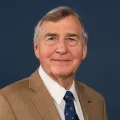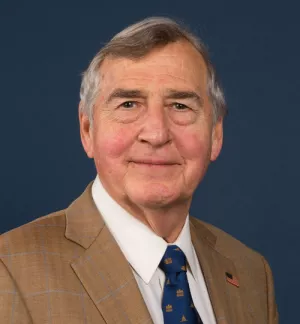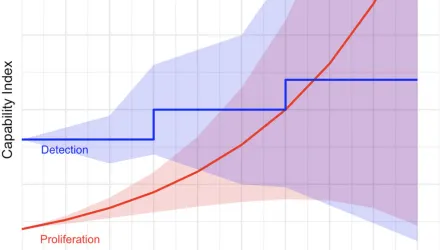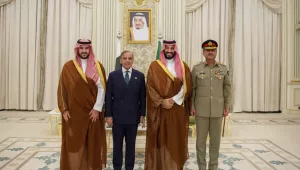Russia Election Analysis
Though the outcome of the presidential election in Russia was a foregone conclusion, many questions remain about when and how which powers will be transferred from whom to whom.
Partial answers to some of the questions about Russia's presidential succession are provided in the March 7 article inThe Moscow Times, "Kremlin Enters Uncharted Waters."
Also included below are speculations from Russian colleagues about what the new administration and cabinet may look like.
Key questions about the Russia's presidential succession:
- When will Medvedev actually assume the Russian presidency?
By law, Vladimir Putin remains president until May 7, 2008, four years to the day of his inauguration. On this day, president-elect and first deputy prime minister, Dmitry Medvedev will officially become Russia's new president. - What has to happen for Putin to become prime minister?
Putin has said he will become prime minister. Under Article 116 of the Russian Constitution, the government automatically has to give up its powers when a new president comes in. Medvedev will therefore have to ceremoniously approve the resignation of the entire Cabinet as well as his own position as first deputy prime minister. Only then can he nominate Putin to be prime minister in the new Cabinet. - What responsibilities does Medvedev have as president-elect?
On Monday, March 3, Putin transferred some presidential responsibilities to Medvedev, putting him in charge of State Council meetings. Putin also issued a special decree regulating Medvedev's new role as the "newly elected president but not yet the president who has assumed presidential power." This means that the presidential administration can now simultaneously serve both Putin and Medvedev. - What will happen to Medvedev's position as chairman of Russian natural gas company, Gazprom? Could he simultaneously hold the posts of president and Gazprom chairman?
The transfer of power at Gazprom is not scheduled to take place until the board's annual general meeting on June 28, when members are expected to elect current Prime Minister Viktor Zubkov as the new chairman.
This is six weeks after Medvedev becomes president and thus, technically, there is nothing stopping him from being both president and Gazprom chairman. Nonetheless, Medvedev could choose to avoid this by stepping down ahead of the June 28 meeting. - What else should we know?
Unlike the Cabinet, the presidential administration is under no obligation to resign upon Medvedev's inauguration, and any changes in personnel are up to the new president. Medvedev will have to balance conflicting personalities and political camps within the current administration.
Potential members of the new administration and cabinet:
Presidential Administration
- Alexei Arbatov: A senior official in the Yabloko party and former deputy chairman of the Duma defense committee. He is now running a leading think-tank, the Institute of World Economy and International Relations. Arbatov may be offered the deputy defense or foreign minister positions; this could indicate the much-expected incremental liberalization of foreign/security policy under Medvedev.
- Sergei Sobyanin: Kremlin chief of staff; expected to keep his post. Some Kremlin officials have expressed interest in him becoming Moscow's next mayor.
- Igor Sechin: Kremlin deputy chief of staff; expected to leave his post. He could be appointed Cabinet chief of staff or concentrate on Rosneft. He is likely to avoid the spotlight for a while since his clan lost its fight for President Vladimir Putin to stay on for a third term.
- Vladislav Surkov: Kremlin deputy chief of staff; expected to keep his post.
- Arkady Dvorkovich: head of the Kremlin's expert department; he is thought to be seeking the post of economic development and trade minister, but Medvedev might opt to keep the current minister who is also his protégé.
- Viktor Ivanov: presidential aide and chairman of Aeroflot and Almaz-Antei; expected to get a senior post in the military-industrial complex or to move to the White House with Putin.
- Igor Shuvalov: presidential aide; expected to move to the White House and be promoted to deputy prime minister.
- Alexei Gromov: head of the Kremlin's press service, board member of Channel One television, supervises news on state television channels; expected to leave the presidential administration and move with Putin to the White House.
- Natalya Timakova: senior Kremlin spokeswoman; expected to replace Gromov as the chief presidential spokesman/supervisor of news on state television channels, possibly as head of the Kremlin's press service.
Cabinet
- Viktor Zubkov: Prime minister; expected to be demoted to first deputy prime minister and appointed chairman or deputy chairman of Gazprom.
- Sergei Ivanov: First deputy prime minister; expected to keep his post or be demoted to deputy prime minister. He is rumored to be seeking the post of Moscow mayor.
- Alexei Kudrin: Deputy prime minister and finance minister; expected to keep his posts.
- Dmitry Kozak: Regional development minister; expected to be promoted to deputy prime minister.
- Tatyana Golikova: Health and social development minister; expected to be promoted to deputy prime minister.
- Alexander Zhukov: Deputy prime minister; expected to keep his post or be promoted to first deputy prime minister.
- Alexei Gordeyev: Agriculture minister; expected to be promoted to deputy prime minister.
- Rashid Nurgaliev: Interior minister; expected to leave and be replaced by his deputy Yevgenii Shkolov, who previously worked as an assistant to Medvedev in the presidential administration.
- Sergei Naryshkin: Deputy prime minister and chief of the premier's staff; hopes to keep his post, but will most definitely lose the job to Sechin.
- Alexander Voloshin: Unified Energy System chairman; expected to join the presidential administration, perhaps as a gray cardinal.
Security Services
- Nikolai Patrushev: Federal Security Service director; expected to have to fight to keep his post to prevent it from going to Viktor Cherkesov, head of the Federal Drug Control Service.
- Viktor Cherkesov, Federal Drug Control Service chief; fighting to become the next FSB director.
- Alexander Bastrykin, head of the Investigative Committee; expected to leave his post.
Related: Graham Allison discusses Medvedev on MSNBC. Watch the video here.
Allison, Graham. “The Transfer of Power in Russia.” March 14, 2008





